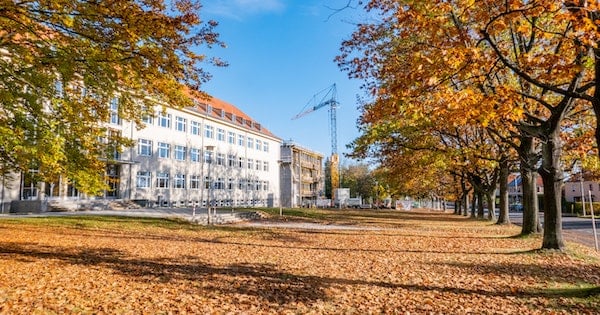Published on
What Community Colleges and Policymakers Should Consider with Biden’s Plan

While the details are in flux, the infrastructure plan President Biden is pushing puts community colleges at the center of economic and workforce development to level the playing field in the United States.
Massive investment in job training coupled with free community college tuition could be the most sweeping presidential cure in our nation’s socioeconomic history. As Biden stated in his recent remarks, his plan could breathe new life into the middle class and beyond. According to a study by the Georgetown University Center on Education and the Workforce, 85% of the jobs to be created in the proposed infrastructure legislation will require training and credentials that could be delivered by community colleges. Community college offers the golden ticket to millions of poor and working-class Americans who have had to watch economic opportunity pass them by.
But the whole plan depends on community colleges delivering the quality education and training needed to support working-class Americans. And here’s the rub: While community colleges are the public infrastructure best suited to grow the middle class, they struggle with their role as drivers of workforce and economic development. History also gives them a poor grade in this role. There are several reasons for this—all of which have to be fixed for President Biden’s plan to have any chance of success.
First, while the Biden plan will require an unprecedented level of collaboration between community colleges and economic and workforce development organizations, community colleges do not have any formal or well-managed method of working with these groups. They each speak different languages and often at cross-purposes. Successful cases are generally driven by outside forces, such as specific external funding that delivers very narrow results and evaporates with the money. The most ambitious effort to date was the U.S. Department of Labor’s Trade Adjustment Assistance Community College and Career Training grant program, an important first try, which showed mixed results according to a 2019 analysis by New America.
Second, community colleges are going to have to make a major shift in the way they treat vocational education (now called Career and Technical Education or CTE). For as long as I have been paying attention, CTE is seen as the poor stepchild, with community colleges maintaining a self-view as the academic precursor to traditional four-year schools, rather than a pathway to a well-paid tradecraft.
Unfortunately, that is not what is needed for the Biden plan. According to the Georgetown analysis, the proposed legislation will create 4.8 million jobs for workers with more than a high school diploma but less than a bachelor’s degree. The education needed will encompass short-term specific skill training via non-credit programming, internships, apprenticeships and industry-based certifications—not traditional academic fare.
I saw the challenge first-hand in my recent role overseeing short-term CTE programs at a community college and witnessed the lack of support for these types of efforts. For example, when it came to space allocation, short-term and non-credit programs were assigned classrooms only after all academic programs had their pick.
Finally, once we get past community college issues, the President’s plan is going to need employers to engage with educators to ensure the right training is being offered. Their complaints about college graduates lacking the skills needed to perform on the job may be legitimate but are constantly contradicted by their own hiring practices, far too often based on the false assumption that a college graduation scroll defines a viable hire. If employers quit accepting degrees as a proxy for skills and instead insist on direct proof of skills, that would be a game changer. Federal funding and a refreshed community college outlook will mean nothing if the right skills are not being taught, and they can’t be defined without true employer engagement.
Some may say I am being unduly harsh and that community colleges struggle simply because they are underfunded. That is no doubt a big factor, but it does not take away from the history in which community colleges have missed the opportunity to deliver the requisite education and training to the people who need it most.
If done correctly and the moment properly seized, President Biden could have a profound, society-altering impact. And it will likely mean some community colleges won’t be able to make the cut. New innovations and competition will leverage the community college resource in ways previously unseen. Community colleges will never be the same, nor should they.
Ultimately, success will come from the right formula marrying well-crafted legislation that will fuse the best of socially progressive programming with fiscal prudence. The result will be a workforce that reflects our increasingly diverse population and an economy that hums with workers who have skills, purpose, and a promising future.
Dare I say, the new American dream.
Disclaimer: This piece was submitted on June 23rd, 2021. Embedded links in articles don’t represent author endorsement, but aim to provide readers with additional context and service.
Author Perspective: Analyst



